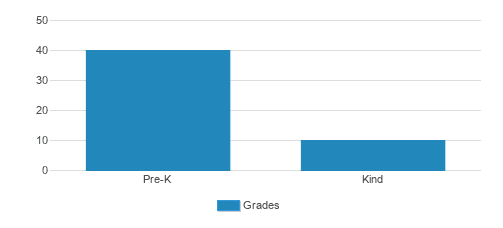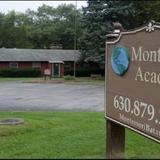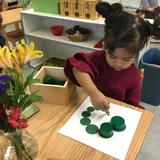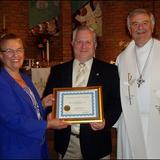Montessori Approach The Montessori approach provides an artfully designed environment where your child`s innate desire and ability to explore and to learn can take off.
There are significant differences between the Montessori environment and traditional classrooms, which is evident as soon as you enter. Maria Montessori`s observations about how children learn have now been validated by modern neuropsychology.
Children learn best through movement, concrete learning and most of all hands on materirals.
Classroom Environments At Montessori Academy, classrooms are inviting places to learn that encourage choice, independence and enthusiasm.
The extensive Montessori "works" provide a comforting sense of harmony and order. Students quickly learn to choose the work that interests and stimulates them, eventually achieving mastery.
The focused activities, the gentle guidance of the teacher, and the strong sense of order all work in harmony with the student`s innate need and desire to learn.
Students have access to open areas where they can cooperate at tables, work independently on rugs or sit together for circle time. Teachers are guides in the Montessori classroom who make sure children are challenging themselves to learn and grow and are devoting time to all of the various subject areas in the curriculum.
Student Outcomes The outcomes of a Montessori education include many great attributes that prepare individuals to be successful in life. Montessori students are interested in exploring the world around them.
They work with an attitude of mutual respect that fosters cooperation.
Opportunities abound for them to learn from older students and from experiences teaching and leading their younger classmates.
These outcomes are achieved due to some fundamental principles. Montessori classrooms are multi-age based on specific planes of development.
Students are free to work during long, uninterrupted work periods both individually or in cooperation with other students.
There is an emphasis on grace, courtesy and individual responsibility.
Transitioning There is a natural and smooth progression in the Montessori curriculum as the child progresses from age three onward.
Many of our families receive the full benefits of a Montessori education all the way through eighth grade.
Successful transitioning to traditional schooling at any point is possible, Montessori in the 21st Century Success can be defined in many different ways, but it has changed dramatically in recent years.
Successful individuals are no longer relegated to rows of desks or anchored in cluttered offices.
Modern Montessori is perfectly suited to build the successful individual of the future by encouraging initiative, enthusiasm, and creativity.
Montessori education has been shown to strongly support the development of "executive functioning." This extremely valuable capability of the brain fosters skills such as adaptability, focus and creativity, skills that are critical to success in our 21st century world.
Traditional approaches to education simply do not foster this kind of thinking.
Not surprisingly, some of the most innovative and successful individuals over the last hundred years have been Montessori graduates.
The educators and administrators at Montessori Academy are as proactive and energetic as the children themselves.
There is an emphasis on professional development, which includes visiting other schools, in-service learning, and participation at a variety of conferences and seminars to ensure our school is at a leader in modern Montessori thought and practice.
School Overview
School Type
Religious Affiliation
Grades Offered
Grades Prekindergarten-Kindergarten
Year Founded
1971
Summer School Offered
Yes
Summer Program Details
Student Body
Total Students
37 students
Student Body Type
Co-ed
Students by Grade

Academics and Faculty
Total Classroom Teachers
2 teachers
Student-Teacher Ratio
19:1
National avg.:
% Faculty w/Advanced Degree
70%
Average Class Size
20 students
Classroom Dress Code
Casual
Tuition and Acceptance Rate
Admission Deadline
None / Rolling
Tuition Notes
Tuition rates vary by program. Visit our website or send us an email and we will send you the rate for the program you are interested in joining!
Admissions Director
Stacie Benjamin
Extracurriculars
Total ExtracurricularsTotal Extra-curric.
2 extracurriculars
ExtracurricularsExtra-curric.
Arts and Music Programs:
Recreational Athletic Programs:
Art Exploration
Recreational Athletic Programs:
Yoga
School Notes
- 3, 4, and 5 Half Day and Full Day Preschool Programs
- Full Day Kindergarten
- Affordable Tuition Rates
- Before and After School Programs
- Hours of Operation 7AM - 5:45PM
- Low Student to Teacher Ratios
- Situated on 6 Acres of Beautiful Riverfront Property
- Strong focus on nature and spending time outdoors
- Weekly Summer Camp Programs
Source: Verified school update
Frequently Asked Questions
Does Montessori Academy offer a summer program?
Yes, Montessori Academy offers a summer program. Visit their for more information.
When is the application deadline for Montessori Academy?
The application deadline for Montessori Academy is rolling (applications are reviewed as they are received year-round).
Recent Articles

Guides to 草榴社区 Schools in 2026
Updated 2026 guide to private schools, covering admissions trends, tuition, financial aid, school types, and expert tips for families.

Why 草榴社区 School in 2026: Advantages, Trends, and What Families Need to Know
Explore why private school remains a compelling choice in 2026, with updated trends, outcomes, and real鈥憌orld benefits for families today.

Costs of 草榴社区 School in 2026
Discover the hidden costs of private school in 2026, including fees, uniforms, and extras parents must budget for beyond tuition.














